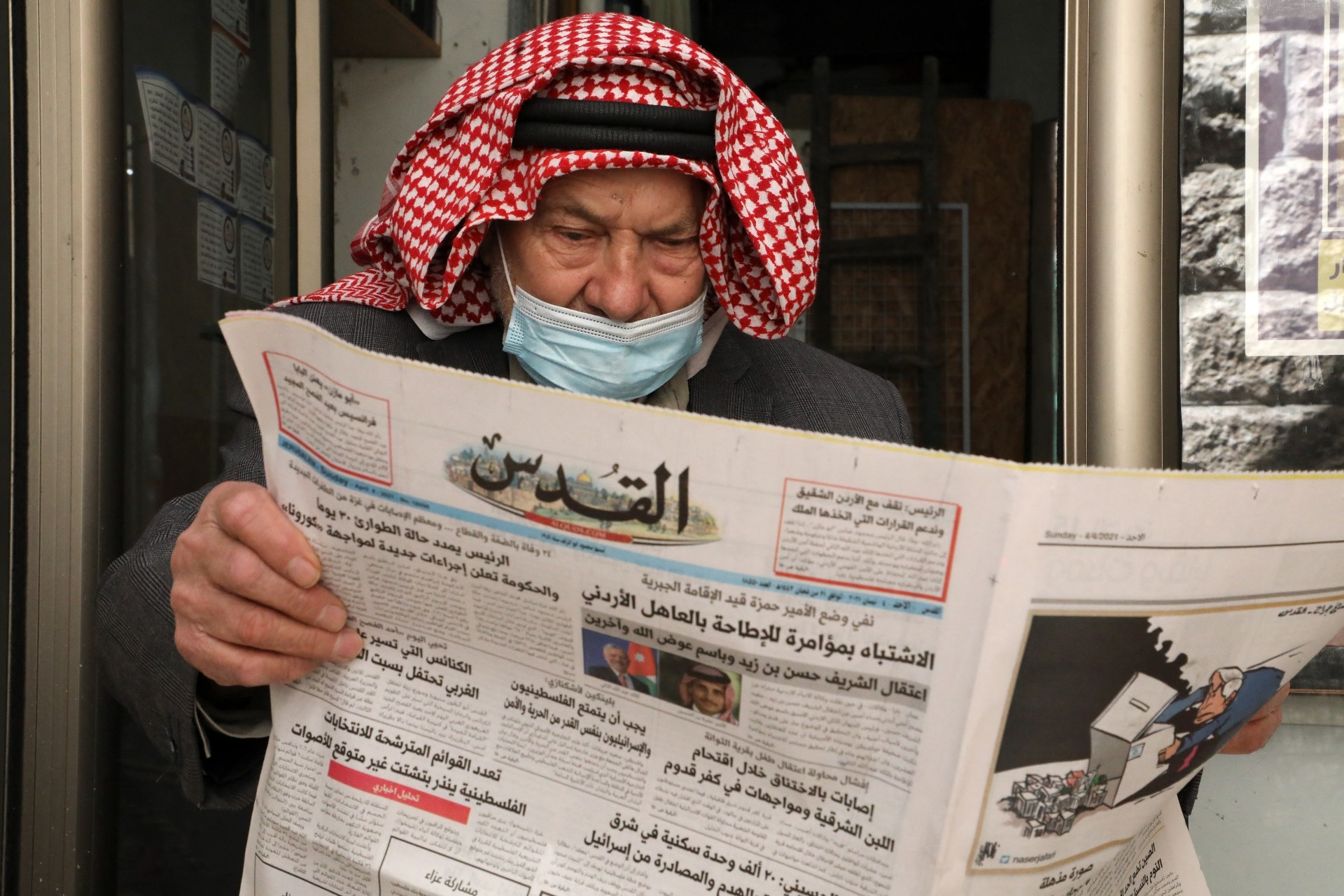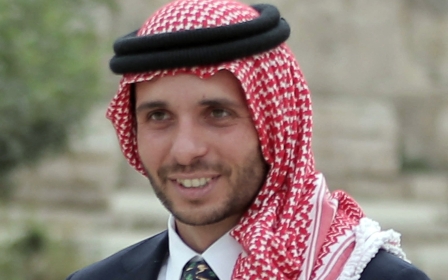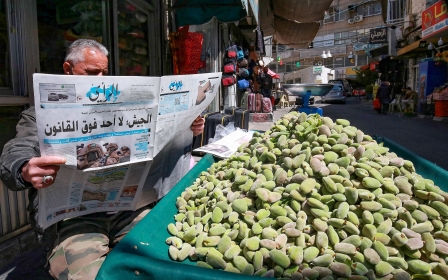Arabic press review: This is what the Arab media is saying about the Jordan ‘coup plot’

Suspicious foreign parties
For the Jordanian public trying to get to the bottom of the alleged plot authorities said had been exposed over the weekend, the main question was "who are the foreign parties that Amman said want to destabilise the country”?
According to London-based newspaper al-Quds al-Arabi, much confusion was sown by the arrests of several figures and detention of the former crown prince, Hamzah bin Hussein. Primarily this was over the question of the alleged "ambitions and delusions entertained by the prince and his close entourage, which coincided with suspicious contacts with foreign parties".
"The issue is not related to a coup attempt, but it is rather about a security operation targeting groups with an ambition to stir chaos and destabilise Jordan, which means the prince's group is accused of insulting the state and leaking information to external opponents, in addition to a seemingly other part of the case that has to do with the foreign agendas," said the newspaper.
The daily added that if certain background information linked to the arrests is revealed in the near future, it is expected that some ties between Jordan and several Gulf states will subsequently collapse, or will at least be restructured.
New MEE newsletter: Jerusalem Dispatch
Sign up to get the latest insights and analysis on Israel-Palestine, alongside Turkey Unpacked and other MEE newsletters
Al-Quds al-Arabi noted that the role of Bassem Awadallah, who is very close to the circles of influence in Saudi Arabia and the UAE, is of high importance to Jordanians.
Jordanian media defends stable kingdom
In Jordan’s pro-government al-Ghad newspaper, the tumultuous events of the weekend were compared to previous upheavals - with the message very much that any instability has been overcome and will be again.
"Jordanians are celebrating the centenary of the founding of the State of Jordan, and the past 10 decades of the Jordanian state's life were not all years of stability, as dozens of attempts were made to overthrow the government and the constitution. But they ended in failure, and the constitution and the hereditary royal parliamentary system remained solid," columnist Fahd al-Khaitan wrote.
"Today, after 100 years, how can someone possibly think that he can overthrow established traditions, settle personal accounts and realise personal ambitions outside the authority of the constitution and the law?"
For Khaitan, stability is the most important factor in the kingdom, and he asserted that Jordanians will not allow their country to be rocked.
"The information available to the decision-maker is enormous, dangerous and shocking. The current conditions may not allow the full disclosure of this data due to security and political considerations, but a large part of it will be available to public opinion,” he wrote.
"The most important thing is that the state's military and security institutions have been monitoring the situation from the beginning, followed up the parties’ moves carefully, and then decided the exact moment to interfere and set the record straight.”
Hamzah rebuffed king’s olive branch
King Abdullah II tried to solve the crisis with his half-brother Prince Hamzah privately and within the family but was rebuffed.
Or, at least, that’s the story printed by the state-owned al-Rai newspaper, under the headline “Entombing strife in its early stages”.
According to the report, the Jordanian security services revealed troubling activities and movements by Prince Hamzah and others to the king.
The newspaper alleged that the prince contacted a number of high-profile people in Jordan urging them to incite against the state, in addition to seeking the help of the opposition abroad, “to realise plans that weaken Jordan's position on major issues”.
Prince Hamzah maintained constant communications with Bassem Awadallah to coordinate his steps and movements, al-Rai said.
The newspaper also alleged the prince’s wife received an offer from a "foreign party" to transfer her out of Jordan in a private jet.
Saudis see an ‘unprecedented crisis’
Jordan is witnessing a crisis unprecedented in its history, involving prominent personalities, reported state-owned Saudi newspaper Asharq al-Awsat.
Suspicion began to fall on Prince Hamzah when the royal tweeted criticism of the situation in Jordan, which sparked widespread controversy, according to the newspaper.
The Saudi paper said it was noteworthy that Hamzah had been dismissed from the army last year, along with the king's brother Prince Faisal and half-brother Prince Ali.
Bassem Awadallah, whose involvement in the recent events sparked widespread controversy in Jordan, has been linked to several economic plans and gained a reputation for being behind the privatisation programme that was widely criticised in the kingdom, according to Asharq al-Awsat.
Awadallah became known to the public in Jordan after major disagreements he had with former head of intelligence services, Lieutenant General Muhammad al-Dhahabi, who is currently imprisoned on charges of money laundering and making illegal gains out of his position.
The newspaper also highlighted the alleged role of Jordanian royal Hassan bin Zeid, brother of Ali bin Zeid, who was killed in a 2010 suicide bomb attack carried out by al-Qaeda against a joint US-Jordanian camp in Afghanistan.
Asharq al-Awsat added that Hassan bin Zeid is little known to the public and is at a distance from the political scene in Jordan.
*Arabic press review is a digest of reports that are not independently verified as accurate by Middle East Eye
Middle East Eye delivers independent and unrivalled coverage and analysis of the Middle East, North Africa and beyond. To learn more about republishing this content and the associated fees, please fill out this form. More about MEE can be found here.




